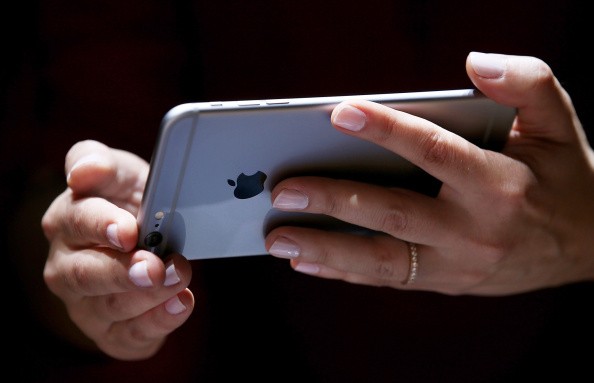Apple App Store is currently in trouble after some Australian consumers claimed that the giant app provider platform accidentally promoted some fake or scam apps. Victims added that some of these fraudulent apps are requiring them to pay more than $10 weekly subscription fees.

A member of the media inspects the new iPhone 6 during an Apple special event at the Flint Center for the Performing Arts on September 9, 2014 in Cupertino, California. Apple unveiled the Apple Watch wearable tech and two new iPhones, the iPhone 6 and iPhone 6 Plus.
Related Article: Apple to Detect Sensitive Content on iPhone Photo Libraries-But Security Expert Has a Warning
Recently, the giant iPhone maker said that other giant tech firms and developers should not sideload their apps on its platform. They added that even competing apps should be banned from its official App Store.
During its battle against Epic Games in the courthouse, Apple released these statements, which made it more intriguing. However, it seems like Apple App Store is still not a safe place for app fans. Last February, an anonymous developer said that some scam applications are still on the iPhone maker's app platform.
The leaker added that the hackers used them to generate more than millions of dollars in revenue.
Apple App Store Allegedly Promotes Scam Apps?
According to 9To5Mac's latest report, 2% of the official App Store's active applications are still scam software. Most of the malicious online platforms are even the top-grossing apps.

This photo illustration taken on January 5, 2017 in Beijing shows a user posing with an iPhone showing an installed New York Times app on the device. - Apple has removed the New York Times from its China app store, the tech giant said, after authorities told the company the app breached regulations. (Photo by Fred DUFOUR / AFP)
Also Read: iOS 15 Beta Users Notice iPhone Camera Auto-Removes Green Lens Flares
This simply means that many people already downloaded them, which is a major issue since hackers and other online attackers could easily breach users' handsets.
However, Tim Cook, the Cupertino company's CEO, declined the allegations and said that the official Apple App Store is a safe and trusted platform.
"We wanted to create a safe and trusted place for users to discover apps-and a means of providing a secure and supportive way for developers to develop, test, and distribute apps to iPhone users globally," added the billionaire.
However, Cook's statement seems to be incorrect since a Twitter user leaked that scam apps are still lurking in the giant application provider.
Beau Nouvelle, the Australian user who claimed that App Store still offers slime apps, said that most of this malicious software requires a weekly subscription. He added that one of them doesn't even work at all.
As of the moment, the iPhone developer still hasn't responded to the guy's latest Twitter post.
Avoiding Fake Apps on Apple App Store
If you are worried about becoming one of the slime apps' victims, DNA provided some of the tips you need to follow. These methods will allow you to avoid scam applications more efficiently.
- Always check the reviews before installing an application from Apple App Store.
- Review the publish dates since most fake apps have recent release dates.
- Check the app's name. If it has incorrect spelling, then there's a high chance it is run by scammers.
For more news updates about Apple App Store and other related stories, always keep your tabs open here at TechTimes.
This article is owned by TechTimes
Written by: Griffin Davis








